Radhika is one of the incredible people sharing their story with you as part of our Turning the Tables on Climate Change campaign – an opportunity for you to help farmers adapt to the new climate reality and thrive. Here’s her story…
As a farmer living in Nepal’s remote and mountainous Dang area, Radhika is experiencing the effects of climate change on her livelihood. She talked to us about her family’s traditional tailoring business and her role as a community leader tackling gender and caste discrimination. She also explained why NOW is the perfect time to make farming a viable livelihood in the region.
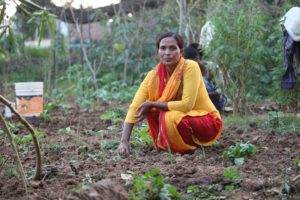
Farming in a remote location
“Our community is isolated. We grow enough just to feed ourselves for a maximum of six months. To make a living for the remaining six months of the year, many people go to India or other countries to work.”
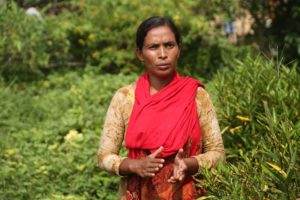
Radhika explained how lack of farming and business skills holds back many farmers in the region from fulfilling their potential.
Impact of climate change
“It was raining until yesterday and we couldn’t plant because of the rain. Likewise, sometimes when we need rain, it doesn’t rain. Climate change has definitely affected our farming by making weather patterns more unpredictable. The location makes our land vulnerable to landslides and floods. There is also a problem of drinking water and irrigation.”
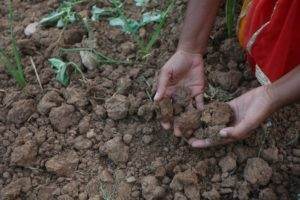
Cycles of droughts and floods further damage the thin, lumpy soil on Radhika’s farm.
A family tradition: Radhika’s tailoring business
“Our family comes from a tailoring background; the skills are passed on from one generation to the other. We are as reliant on farming as a livelihood as we are on farming. There has not been any tailoring work in the past six months because of the pandemic. It’s making our lives really difficult. We hardly have any food to eat.”
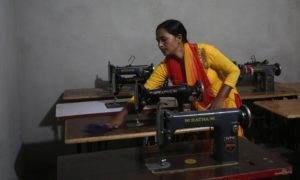
“I’m sure my machine has jammed” said Radhika. The pandemic means she’s been unable to use her skills as a tailor, cutting off a valuable source of income.
Gender and caste empowerment
“I’m thankful for this opportunity to voice the problems faced by people like me – women Dalit farmers. I think that women should be independent and should have the opportunity to learn farming skills. I want to end caste-based discrimination, especially against Dalit people. I’m involved in political and social causes to fight for women’s rights and Dalit rights. I have recorded three of my own awareness songs. One song is about the Government’s decision is made to allow Dalit members as representatives in the new election.”
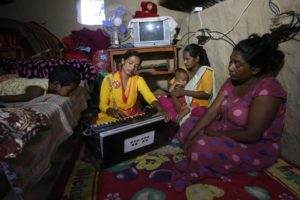
Radhika sings a song she wrote about the rights of Dalit people, a traditionally under-represented and marginalised group of people in Nepal.
An opportunity to make farming work
“People here would rather go abroad to work than farm their own land. They have a negative mindset in terms of agriculture. Due to coronavirus, lots of people are stuck at home. I’ve noticed that, since they cannot go anywhere to work, they have decided to do some farming on their idle land. At least they have some hope in farming – that’s why people have started doing it lately. I think this is the right time to attract people towards farming. They need to be made aware of the long-term benefits of agriculture.”
“If we can somehow convince people to stay in their own country and do farming rather than going abroad to work, I think they can prosper personally, as well as financially.”
“If you want to experience life, you should be ready to struggle, be it in a political field, social field or agriculture field. Therefore, if you struggle in life, you’ll be able to live your life.”
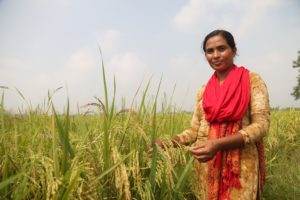
Despite the challenges of climate change and the pandemic, Radhika sees a powerful opportunity to improve the lives of people in her community.